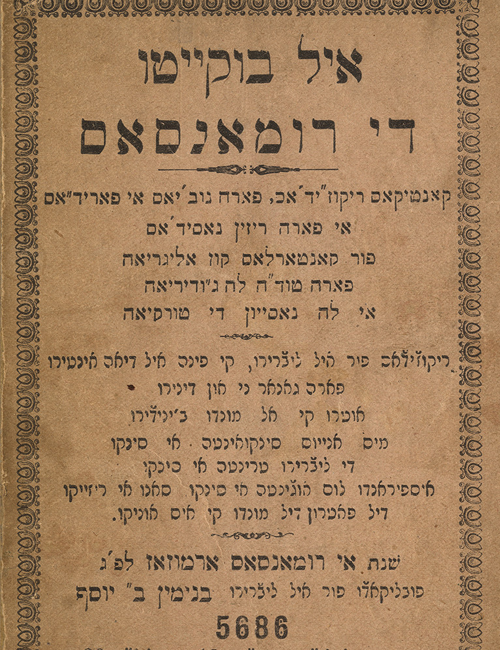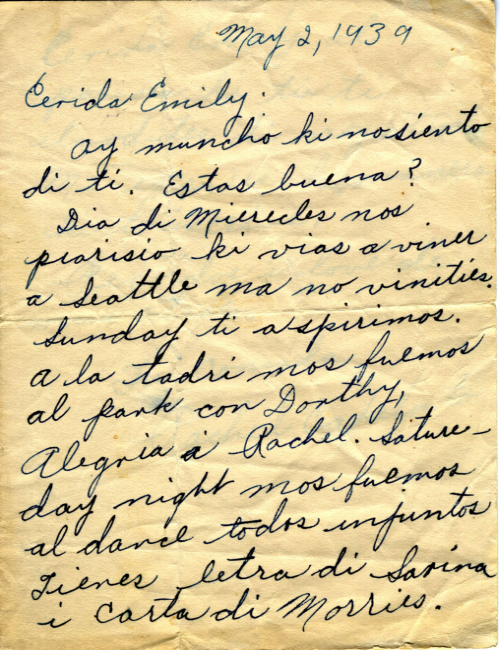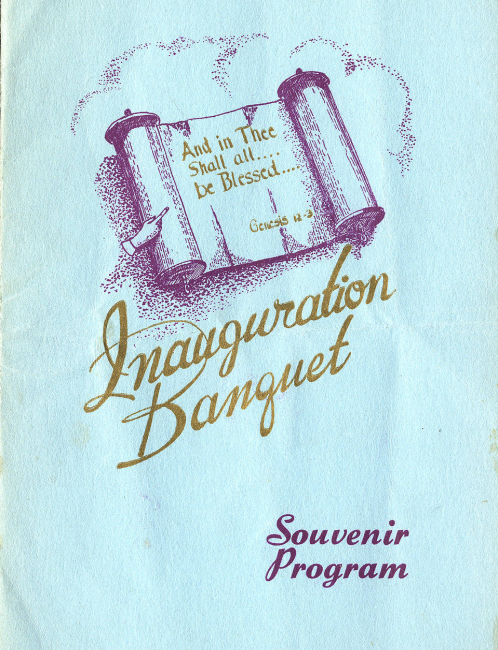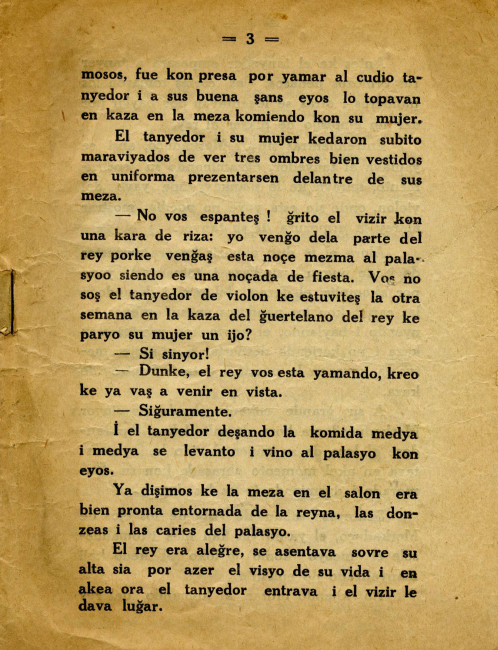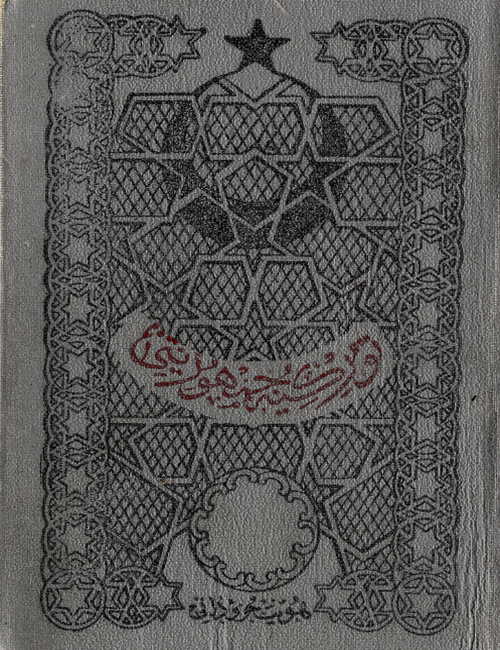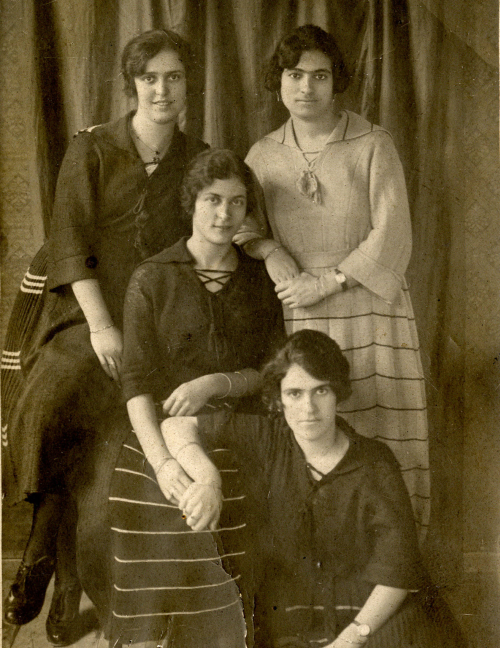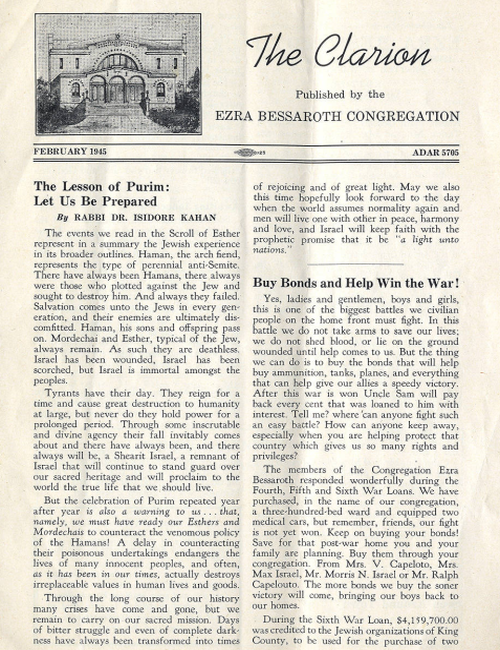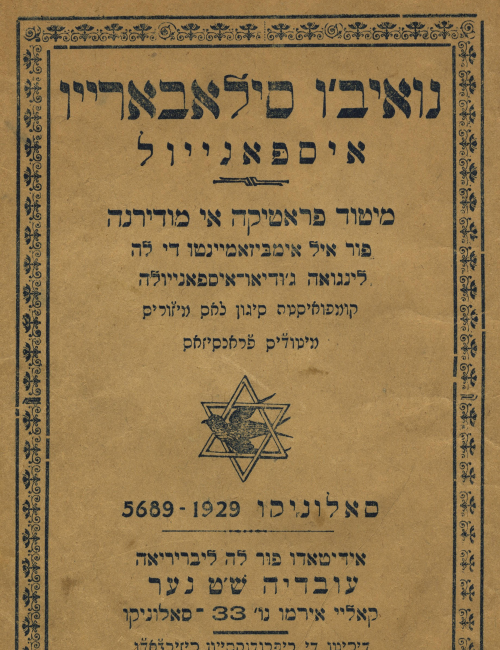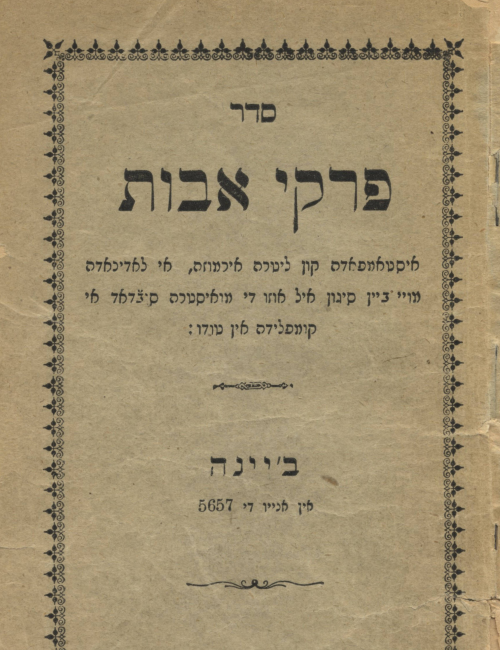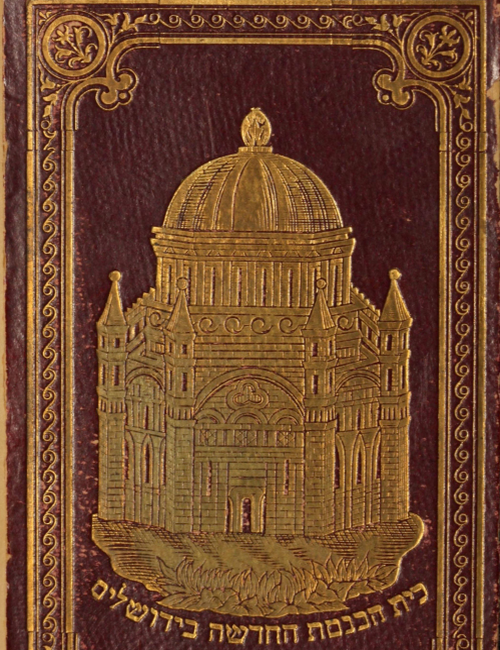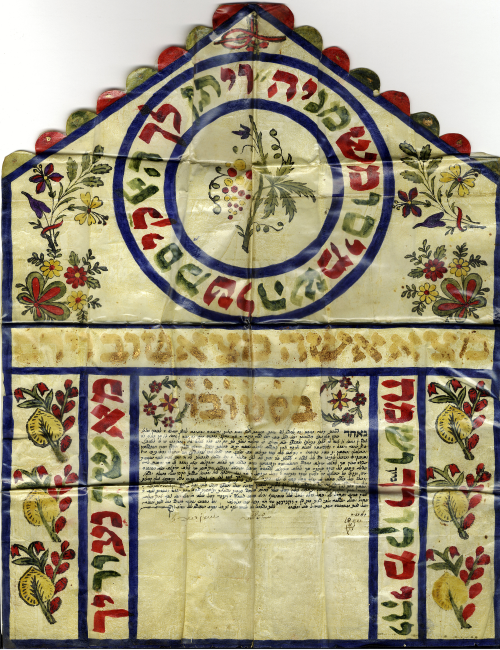
The Sephardic Studies Digital Collection
The Sephardic Studies Digital Collection (SSDC) at the University of Washington serves as a bulwark against the loss of culture, language, and history. As the world’s first major digital repository of sources pertaining to the largely invisible yet historically significant Sephardic Jews of the Mediterranean world, the SSDC includes key books, archival documents, and audio recordings that illuminate the history, culture, literature, politics, customs, music, and cuisine of Sephardic Jews all expressed in their own language, Ladino. The artifacts offer Mediterranean views of major political, cultural, social, and economic transformations from the 17th to the 20th centuries articulated in a Spanish-based language utilized by Jews living in the Muslim world. In short, these texts challenge us to reconsider popular and scholarly assumptions about the relations between Jews and Islam as well as Europe, the Middle East, and the United States—past and present.
The SSDC also includes over 140 recordings of songs from the Benmayor Collection of Sephardic Ballads and other Lore. Professor Benmayor began recording these songs in 1972, for her PhD dissertation, and she published her findings in the book Romances Judeo-Espanoles de Orient [Judeo-Spanish Ballads from the Eastern Tradition]. These songs, known as romansas, were sung by Sephardic Jews who were born and raised in the former Ottoman Empire, mainly from Rhodes, Marmara and Tekirdag, all of whom immigrated to the United States at the beginning of the 20th century.
The Benmayor Collection of Sephardic Ballads and Other Lore
Over 140 recordings of Sephardic Jews who were born and raised in the former Ottoman Empire and who immigrated to the United States at the beginning of the 20th century, collected by Professor Rina Benmayor beginning in 1972.
-
Ballads of Classical Antiquity »
Ballads that derive from classical Roman and Greek history and legends.
-
Biblical Ballads »
Ballads that tell a story from the Bible, using the romance form.
-
Carolingian Ballads »
Ballads that derive from French medieval epic poems and legends of the rein of Charlemagne.
-
Coplas »
Traditional Spanish four-verse poems.
-
Folkcures & Traditions »
Traditional rituals for trauma and warding off the evil eye.
-
Folktales »
Consejikas de Johá, or humorous trickster tales derived from the Turkish Nasreddin Hodja, who in Ladino became known as Johá.
-
Historical Ballads »
Ballads that narrate historical events of national significance, including epics of the Reconquest and border conflicts between Christians and Moors.
-
Lyric Songs »
Popular love songs that express human emotions but are not ballads in structure or form, and do not narrate a story.
-
Novelesque Ballads
Ballads that narrate fictional stories about love, murder, incest and other misfortunes, often with women in leading roles. Also includes fantastical stories of animals and humans.
-
Religious Songs »
Songs with religious themes that are not in ballad form.
About the Sephardic Studies Digital Collection

The Sephardic Studies Digital Collection (SSDC) at the University of Washington is one of the most expansive and fastest growing repositories of source materials pertaining to the Sephardic Jewish experience recorded in the Ladino language. The SSDC showcases a wide array of published and unpublished materials, including novels, prayer books, bibles, manuscripts, letters, newspapers, magazines, songbooks, poetry, theater scripts, marriage contracts, photographs, postcards, and books on religion, history, grammar and more. The languages contained in these documents also include Hebrew, Aramaic, Turkish, Arabic, Yiddish, French, English, Greek and Italian. Most of the artifacts originated in the former Ottoman Empire, while others were published in Vienna, Livorno, Seattle, New York, Baghdad, and Amsterdam.
Until now, the written record of the experiences, anxieties and aspirations of Sephardic Jews remain dispersed and largely shrouded in mystery. Assembled from the bookshelves, closets and basements of residents and institutions in the greater Seattle region, and increasingly elsewhere in the country and abroad, the SDCC constitutes one of the largest digital Ladino repositories in the United States with over 400 published works in Ladino that have already been digitized. The collection sheds light on the lesser known history and culture of Sephardic Jewsand has sparked renewed interest among scholars, educators, librarians, artists, cultural activists and community members alike.
As the SSDC continues to expand, new acquisitions are constantly made and new contributions are always welcomed. Learn more about the Sephardic Studies Digital Collection here.
A special debt of gratitude is owed to:
Sephardic Studies Founders Circle members: The Isaac Alhadeff Foundation, Eli and Rebecca Almo, Joel and Maureen Benoliel, Richard and Barrie Galanti, Harley and Lela Franco, and Marty and Sharon Lott
The Stroum Center for Jewish Studies
The Digital Strategies Office of the University of Washington Libraries
The Washington State Jewish Historical Society
Numerous community partners and supporters


